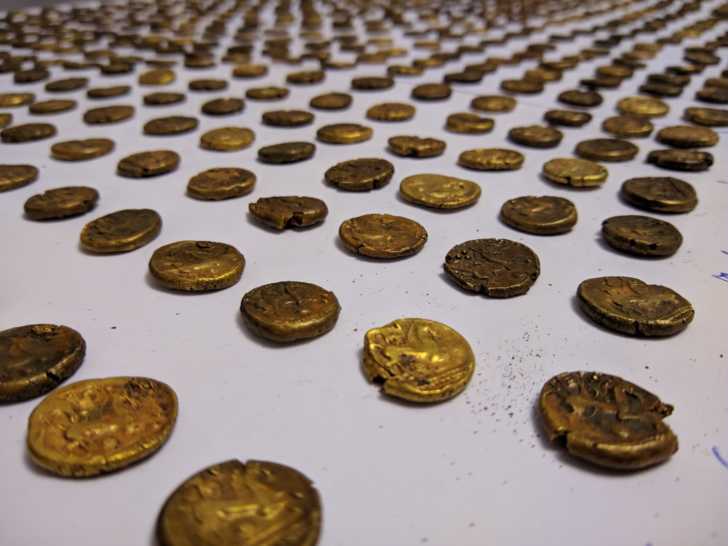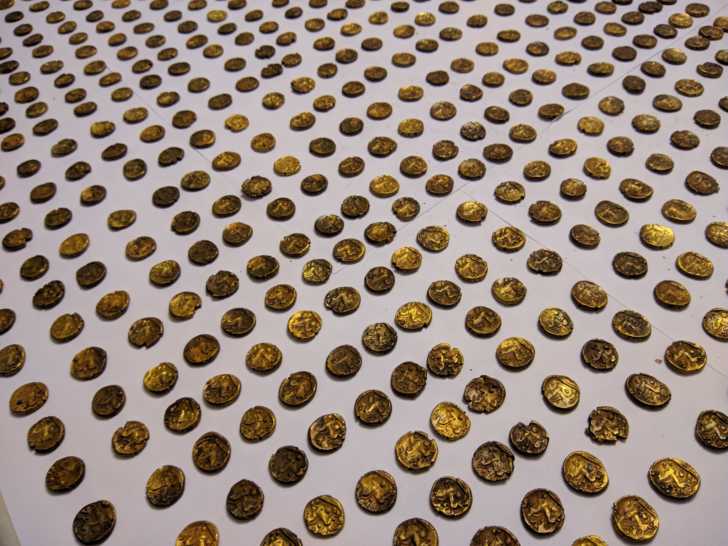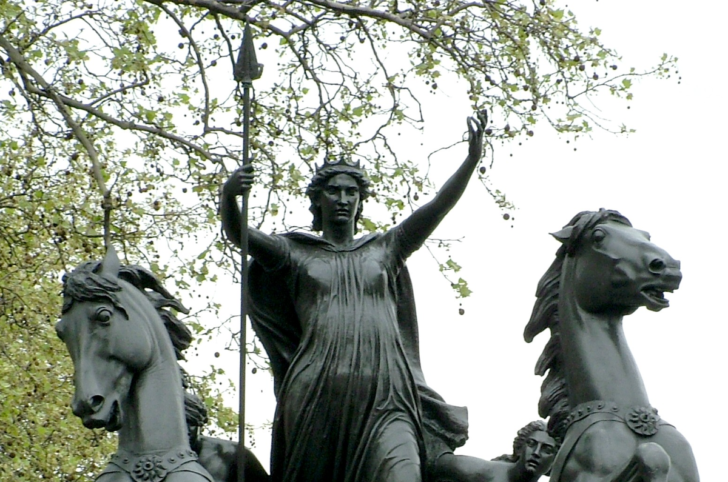Bird-Watcher Accidentally Discovers 2,000-Year-Old Celtic Coins
The coins are thought to be from the first century, an important historical find.
Have you ever dreamed of finding a buried treasure? It happened in real life in September 2020 for one lucky British birdwatcher.
He happened upon the treasure accidentally and there were 1,300 pieces of gold in total. They seem to be coins from the first century that were crafted by hand.
According to researchers, the Iron Age Celtic coin find is from an age when the warrior queen Boudica was reigning supreme. They revolted against the occupation of Britain by Rome. Researchers are excited by the find because it may shed some additional light on what things were like in Iron Age Britain.

I’m sure at this point, the question you have on your mind is how a bird watcher would make such a discovery. He was out for a walk when he saw some magpies and a buzzard in a field. As he got closer, he picked up something shiny he saw on the ground and it was an ancient coin. He took no time to go home and don his metal detector to search and see what else he could find.
It didn’t take long before a large batch of metal was being detected by the machine and it wasn’t very deep. When he dug down about 18 inches, he found the copper vessel that was packed with ancient coin. According to DailyMail, he said: “I had to sit down to get my breath back. I had only come out for a walk and found a Celtic hoard.”
This is where things get kind of sticky. It isn’t a straightforward matter of keeping anything you find if you find it in the UK. Anything that is located must be reported and when the man spoke to a local coroner, he did so.

After a treasure find is reported, experts are required to examine the find. If they determine it is an ancient treasure, everything is offered to museums for a price. The person who found the treasure will keep a portion of the profit from the sale. Since many of the better finds have historical significance, they are not supposed to simply go to private collections.
The coins that the bird watcher found are certainly an important historical find. Experts feel that the “staters” were probably buried while Boudica was still in power. She was ruler over the Celtic Iceni tribe, which was found throughout what is now Norfolk. After her husband died, she started a rebellion against the Roman overlords that were oppressing Britain.

Much of that time has been lost to history, but the Smithsonian reports that some 70,000 Roman troops and sympathizers were killed before the uprising was suppressed.
Historians feel that increased hoarding occurred during the first century CE as a result of the difficulties faced during those days.
SKM: below-content placeholderWhizzco for DOT

